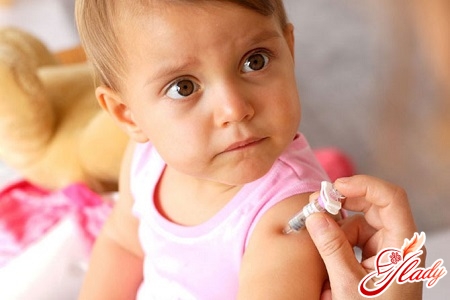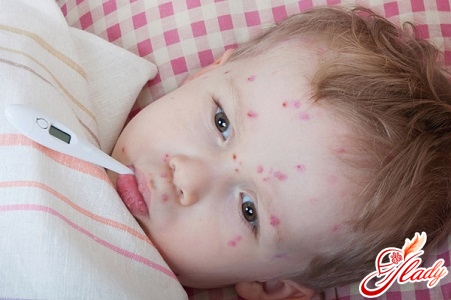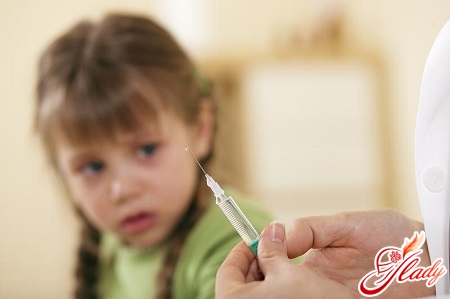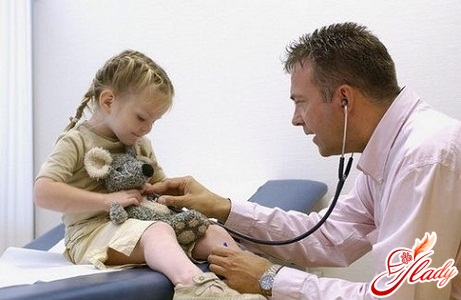 A few decades ago, children'sgynecologist was something out of the ordinary. Unfortunately, in our time the children's gynecologist endocrinologist is one of the most popular specializations of children's doctors. Gynecologic diseases are rapidly becoming younger and often girls face very unpleasant phenomena. Children's gynecologist is becoming more and more popular specialist. As a rule, the mother, having noticed something wrong, starts to panic and seek advice and support from more experienced friends or relatives. In the course begin to go a variety of means - from uncontrolled use of antibiotics to trays with all sorts of herbs. Sometimes these measures temporarily help, and sometimes only worsen the situation. It is most reasonable to consult a doctor - timely consultation of a child gynecologist will help to avoid a lot of problems, both in the present and in the future. Very many parents are embarrassed to contact a pediatric gynecologist, considering this as something embarrassing. And after all, in fact, questions to a pediatric gynecologist can help you avoid many unreasonable unrest. But if your fears are not in vain and your crumbs do have health problems, the consultation of the pediatric gynecologist will help diagnose the diseases on time and prescribe an effective treatment. All parents are interested in the question of what the children's gynecologist is doing? The doctor will conduct the necessary examination, appoint, if necessary, certain studies and select the appropriate treatment regimen. With what diseases do pediatric gynecologists endocrinologists face? There are a lot of them, but only the main ones are listed below:
A few decades ago, children'sgynecologist was something out of the ordinary. Unfortunately, in our time the children's gynecologist endocrinologist is one of the most popular specializations of children's doctors. Gynecologic diseases are rapidly becoming younger and often girls face very unpleasant phenomena. Children's gynecologist is becoming more and more popular specialist. As a rule, the mother, having noticed something wrong, starts to panic and seek advice and support from more experienced friends or relatives. In the course begin to go a variety of means - from uncontrolled use of antibiotics to trays with all sorts of herbs. Sometimes these measures temporarily help, and sometimes only worsen the situation. It is most reasonable to consult a doctor - timely consultation of a child gynecologist will help to avoid a lot of problems, both in the present and in the future. Very many parents are embarrassed to contact a pediatric gynecologist, considering this as something embarrassing. And after all, in fact, questions to a pediatric gynecologist can help you avoid many unreasonable unrest. But if your fears are not in vain and your crumbs do have health problems, the consultation of the pediatric gynecologist will help diagnose the diseases on time and prescribe an effective treatment. All parents are interested in the question of what the children's gynecologist is doing? The doctor will conduct the necessary examination, appoint, if necessary, certain studies and select the appropriate treatment regimen. With what diseases do pediatric gynecologists endocrinologists face? There are a lot of them, but only the main ones are listed below:
- Vulvovaginitis and simple vulvitis. They are the most common diseases of genital organs of an inflammatory nature. These inflammations cause such microorganisms as E. coli, streptococci, enterococci and staphylococci.
Most susceptible to inflammatory diseasesof the genitals, those girls who suffer from a metabolic disorder often get colds: bronchitis, laryngitis and tracheitis. The child's body is very weak and as a result, the microbes that somehow get into the girl's vagina cause rather strong inflammatory diseases. More often pathogenic microorganisms get into the vagina along with the calves, with the wrong daily toilet of the genitals, while bathing the child in polluted waters, including natural reservoirs. These diseases, both vulvitis and vulvovaginitis, have approximately similar symptoms. The main sign of these diseases is the allocation of whitish color from the genital tract of the girl. In the same case, if the baby has introduced any foreign object into the vagina, whether it is a button, a small toy, a piece of paper, a pin or a clip, as a rule, a sufficiently strong vulvovaginitis develops, accompanied by a very abundant release of leucorrhoea, which have an extremely unpleasant smell . 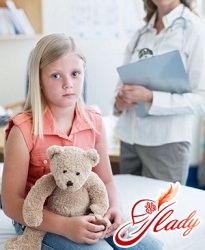 Cystitis is the second most frequent disease, withwhich faces a pediatric gynecologist. Cystitis occurs equally often in boys and girls, but in girls it is much more severe, in a pronounced form. In addition, cystitis occurs equally often in young girls and in adolescent girls. Cystitis in babies, as a rule, occurs due to hypothermia or vulvitis, and in girls of older age - as a result of hypothermia, as well as vaginal dysbiosis. Treatment of cystitis in children is no different from treating the disease in an adult. Examination in a pediatric gynecologist, urinalysis, and sowing on the sensitivity of microflora to antibiotics. In no case should you delay the initiation of cystitis treatment, since the inflammatory process in girls is very quickly spread from the bladder to the kidneys. At the first signs of the disease, it is necessary for the child to be examined by a pediatric gynecologist.
Cystitis is the second most frequent disease, withwhich faces a pediatric gynecologist. Cystitis occurs equally often in boys and girls, but in girls it is much more severe, in a pronounced form. In addition, cystitis occurs equally often in young girls and in adolescent girls. Cystitis in babies, as a rule, occurs due to hypothermia or vulvitis, and in girls of older age - as a result of hypothermia, as well as vaginal dysbiosis. Treatment of cystitis in children is no different from treating the disease in an adult. Examination in a pediatric gynecologist, urinalysis, and sowing on the sensitivity of microflora to antibiotics. In no case should you delay the initiation of cystitis treatment, since the inflammatory process in girls is very quickly spread from the bladder to the kidneys. At the first signs of the disease, it is necessary for the child to be examined by a pediatric gynecologist.
- Thrush is the most commondisease not only in adult women, but even in nursing girls. Infection with yeast-like fungi occurs when the baby passes through the mother's birth canal. In the same way, it is possible to infect a girl not only with mushrooms, but with other simple microorganisms - chlamydia, trichomonads, herpes and gonorrhea.
Thrush is characterized by such symptoms asitching, burning and pronounced reddening of the external genital organs, highlighting white curdled discharge. If the disease has a trichomonadal nature, the secretions have a foamy shape. Parents should remember that most often the disease manifests itself not immediately after childbirth, but only after 4 to 5 years. In some cases, the incubation period of the disease can last even longer and manifest itself only after the first menstruation.
- Another pathology with which they come to the receptionchild gynecologist, this juvenile bleeding. It occurs during the period when the menstrual cycle is being established. It is caused by diseases of various internal organs, chronic intoxications of the body and all sorts of psycho - emotional overloads. Very often the occurrence of juvenile bleeding is provoked by prolonged sun exposure to the girl's organism, or by diseases accompanied by prolonged hyperthermia.
Often it is juvenile bleeding that isone of the first signs of a blood defect in a girl - both congenital and acquired. Juvenile bleeding often develops gradually: first the girl has very meager spotting of the syphilis, which only a few days later turn into a rather heavy bleeding. But in some cases the juvenile bleeding begins very sharply and violently - the girl opens the strongest bleeding. In this case, there is a serious threat to the life of the child, so there is an urgent need for an immediate examination of the child's gynecologist.
- Amenorrhea is the absence of a normalmenstrual cycle in girls and women of reproductive age. As a rule, if a girl 15 - 16 years old does not have a menstrual cycle, doctors talk about primary amenorrhea.
Primary amenorrhea can be caused by manyfactors: to be hereditary in nature (later on the beginning of menstruation in mother and grandmother), disruption of normal physiological development and organic defects (absence of uterus, underdevelopment of the ovaries), endocrine system disorders, mental development disorders, critically low body weight. If the girl's menstrual cycle is already established, but after a while the menstruation stopped, and pregnancy is excluded by the doctor, they talk about secondary amenorrhea. A survey of a large number of girls with secondary amenorrhea suggests that in most cases amenorrhea is caused by severe disruption in the endocrine system, such as an ovarian tumor or pituitary gland. Also, the cause of secondary amenorrhea may be overload associated with training load, stress, a sharp decrease in body weight, both as a result of diets, and as a result of diseases. But in no case should you try to establish the cause of amenorrhea independently and treat it yourself.
- Another problem that sometimes occursgirls, this is endometriosis. Endometriosis is the spread of the cells of the uterine cavity (endometrium) beyond its location. Similar areas of the endometrium, as well as the endometrium in the uterus, bleed during the period of menstruation, under the influence of the hormonal background.
In the event that the blood does not have freeoutflow, it accumulates in the body for some time and forms endometrotic cysts. Every month, after every menses, the size of the cyst increases, the girl experiences very strong pain. Such cysts must be removed. If the cyst is of a small size, the removal occurs with a laser or with the help of electrocoagulation. In the same case, if the cyst is very large, removal occurs surgically. A girl with endometriosis needs constant supervision of a gynecologist, an endocrinologist.
- Inflammatory processes of the uterine appendages alsoare a frequent reason for contacting a pediatric gynecologist. The adnexa of the uterus are the ovaries, ligaments and fallopian tubes. The most common inflammation is the fallopian tubes.
In girls, inflammatory processes occur more oftenall because of the weakening of the body's immune system. Most often inflammation of the uterine appendages is preceded by such diseases as appendicitis and other diseases of the abdominal cavity, acute respiratory diseases, tonsillitis and tonsillitis. No less dangerous and hypothermia of the body, especially during menstruation. Inflammatory process in the appendages of the uterus is characterized by severe aching pain, localized in the right and left lower abdomen, reaching its peak during menstruation. To treat the disease, doctors use anti-inflammatory drugs, antibiotics and antispasmodics. In addition, antihistamines are used, as well as multivitamin complexes for general strengthening of the body and the immune system. In addition, the treatment complex must include such physiotherapeutic procedures as treatment with an alternating magnetic field and ultrasound.
- Unfortunately, but even for small girlsthere are tumors of the genital organs. Most often, these are ovarian tumors, a little less often are tumors of the vagina and uterus. As the statistics of medical observations show, out of every three cases of genital organs genital processes in children, two cases, unfortunately, occur in malignant neoplasms.
And if the girls before the menstrual periodcycle risk of these tumors is relatively small, it is during the formation of the menstrual cycle, the chances are significantly increased. This is explained by the fact that during this period the hormonal background of the girl significantly changes, the sensitivity of ovarian tissues to hormones increases, the blood supply of the genital organs increases, the synthesis of the cellular elements of the ovaries increases. That is why this period is favorable not only for a natural increase in the size of the ovaries, but also for the development of tumors. Sometimes in some cities the gynecologist in kindergarten is still practiced. In general, of course, a preventive examination of a gynecologist for a girl is necessary, but parents should know about a few simple things:
- It is inadmissible to conduct gynecological examinations in the medical office of the kindergarten - only in the specialized office of the children's polyclinic.
- In no case is it permissible to conduct a gynecological examination without prior notification to the parents and obtaining their consent.
- Gynecological examination of girls under the age of 15 is carried out only in the presence of the mother.
That's why a gynecologist in a kindergarten alreadyfor a long time is the subject of debate among doctors. If you have any doubts about your daughter's health, it is much more reasonable to contact a doctor - a gynecologist in your clinic. In the event that the girl's health problems do arise, the parents begin to wonder about where to find a children's gynecologist. Someone prefers to go to private clinics, residents of large cities have the opportunity to register a call in the clinic, and a children's gynecologist will come to the house. However, as the experience of so many parents shows, a children's gynecologist is a good and competent specialist, and can work in a regular district clinic. Before contacting a doctor, try to learn about it from other parents or on the Internet. In addition, you can always ask a pediatric gynecologist and get the most exhaustive answers to it. Remember that both you and your doctor have one common goal - the health of your daughter. After all, if the illness begins to be treated at the very beginning, complications will be much less. Remember that from the youth it is necessary to protect not only honor, but also fragile health of the future woman. We advise you to read:




